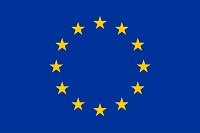NV-doped diamond for a better diagnostic of cardiovascular diseases
Cardiovascular diseases are one of the most common causes of death worldwide. Therefore, it is necessary to develop personalized medical solutions to improve the chances of curing patients. In order to do so, the metabolic process of heart tissue needs to be understood and observed on a molecular level.
Current methods do not allow this in high resolution, and they furthermore rely on radioactive substances. Quantum technology offers a new approach: the project develops an innovative diamond polarizer that is able to work at room temperature with a 160-times higher efficiency, offering a polarization that is 40-times faster and 4-times cheaper than before. By those means, quantum technology is being utilized for human needs.


